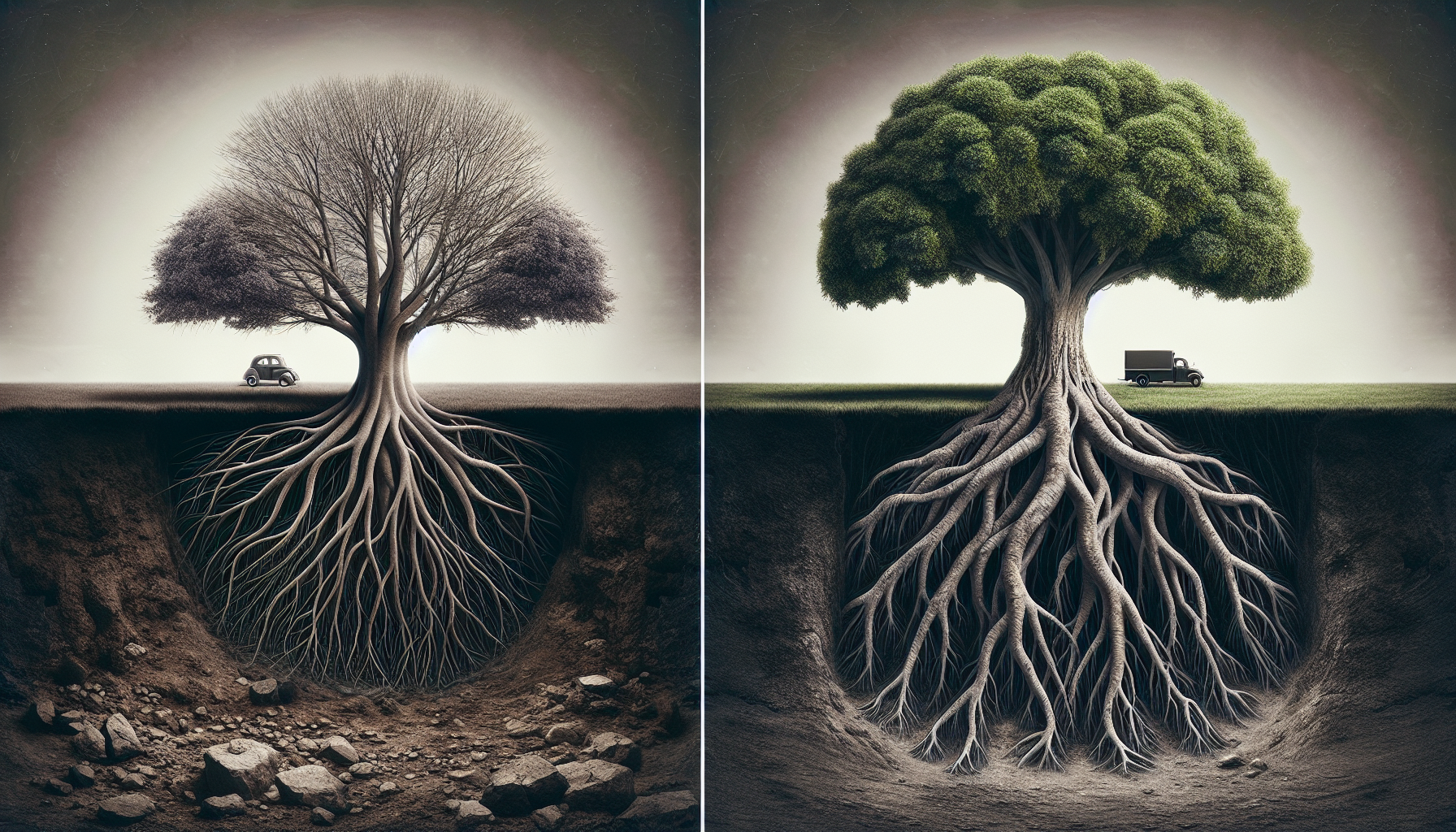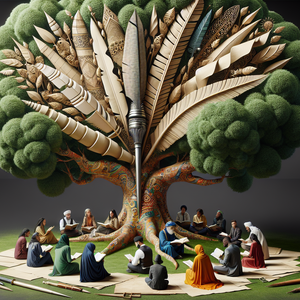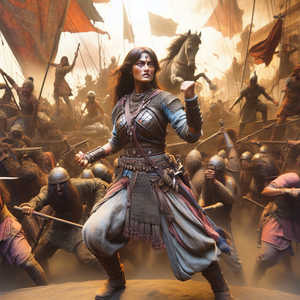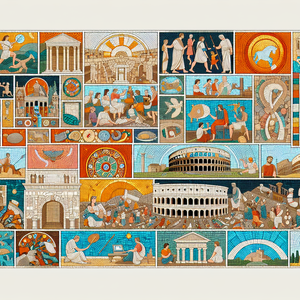Digital Storytelling for Cultural Heritage: Breathing New Life into the Past

Digital storytelling is more than a passing trend; it is a revolutionary way to educate, connect, and advocate for history and culture. With the rise of digital platforms such as podcasts, YouTube, blogs, and social media, the ability to reach diverse and niche audiences has exploded. According to Pew Research, podcast listenership in the United States has seen steady growth, with millions tuning in weekly for education, entertainment, and inspiration. Similarly, YouTube has become a hub for visual storytelling, with over 2.5 billion monthly active users globally. These platforms have democratized access to information, allowing creators to share stories with audiences who might otherwise never encounter them. For cultural heritage enthusiasts, this growing appetite for engaging, authentic stories is a golden opportunity. Whether it's uncovering forgotten histories, celebrating marginalized voices, or exploring the traditions of ancient civilizations, digital storytelling provides a bridge between the past and the present. It makes history more accessible and relevant to a world increasingly disconnected from its roots, inspiring curiosity and emotional engagement in new generations.
Crafting Compelling Stories: The Heart of Digital Storytelling
At the core of successful digital storytelling lies the ability to craft narratives that captivate and resonate with audiences. History is filled with rich, untapped stories waiting to be told, but the key to unlocking their potential lies in finding your unique angle. What topics ignite your passion? What cultural or historical themes stand out to you? Whether it’s the hidden lives of women in history, the impact of local folklore on modern society, or the preservation of endangered traditions, your niche will set you apart. Examples of creative storytelling approaches include podcast series exploring local landmarks, YouTube channels recreating historical moments, blogs highlighting marginalized communities, and social media campaigns offering bite-sized cultural insights. Engaging storytelling techniques, such as vivid imagery and emotional connections, are essential to make history come alive and resonate with audiences.
Tools and Platforms to Begin Your Journey
One of the most exciting aspects of digital storytelling is its accessibility. Launching a project often requires minimal upfront investment, making it an ideal pursuit for individuals transitioning from traditional careers. Whether you're a former Cultural Resources Specialist or simply a history enthusiast, the tools to get started are at your fingertips. Recommended platforms include blogging tools like WordPress or Medium, podcasting platforms like Anchor or Podbean, YouTube for visual storytelling, and social media channels like Instagram or TikTok for bite-sized content. Collaborations with museums, libraries, or historical societies can also amplify reach and provide valuable resources.
Turning Passion into Profit: Monetizing Digital Storytelling
While digital storytelling often begins as a passion project, it has the potential to evolve into a sustainable career. By building a loyal audience and leveraging various monetization strategies, you can turn your creative pursuit into a source of income. Monetization options include sponsorships and advertising, crowdfunding through platforms like Patreon or Ko-fi, selling merchandise, offering workshops and courses, and freelance opportunities such as writing, consulting, or speaking engagements. These strategies can transform your storytelling into a rewarding career path.
Success Stories: Inspiration from Digital Storytellers
Many individuals have turned their passion for history and storytelling into thriving digital platforms. Examples include Dan Snow's History Hit, a podcast and streaming platform combining interviews, articles, and documentaries; The History Guy, a YouTube creator focusing on obscure historical events; and Dr. Shini Somara, a digital storyteller simplifying complex topics for broad audiences. These success stories highlight how creativity, consistency, and passion can lead to significant influence in the digital space.
Why Digital Storytelling Matters for Cultural Heritage
In today’s world, misinformation and historical erasure pose real threats to cultural preservation. Digital storytelling offers a powerful antidote, providing a platform to highlight diverse perspectives and ensure the voices of the past are not forgotten. By embracing digital tools, storytellers can democratize access to history, inspire curiosity, and foster a deeper appreciation for our shared heritage.
For laid-off Cultural Resources Specialists and history enthusiasts alike, digital storytelling represents a new frontier for preserving and sharing cultural heritage. It offers a way to transform expertise and passion into a meaningful career while reaching global audiences hungry for authentic, untold stories. Whether through blogs, podcasts, videos, or social media, the tools to succeed are more accessible than ever. So, why wait? The rich tapestry of history is waiting to be unraveled, and the world is eager to listen.
Digital Heritage Content Creator
Museums, historical societies, digital media companies, freelance platforms like Patreon or YouTube
Responsibilities and Qualifications
Develop multimedia content (videos, blogs, podcasts) to present historical and cultural narratives in engaging ways.
Research and synthesize historical data to create accurate yet accessible storytelling for diverse audiences.
Collaborate with museums, archives, and cultural institutions to access historical materials and expand reach.
Cultural Heritage Data Analyst
Universities, government agencies like the National Park Service, private archaeological firms
Responsibilities and Qualifications
Analyze and digitize historical records, artifacts, and collections to create searchable, user-friendly databases.
Utilize Geographic Information Systems (GIS) to map and interpret historical or archaeological data.
Work with AI and machine learning tools to enhance accessibility of cultural heritage archives.
Heritage Interpretation Specialist (Digital Focus)
Museums, tech companies specializing in AR/VR, cultural tourism organizations
Responsibilities and Qualifications
Design and implement virtual tours or augmented reality (AR) experiences for historical sites or museums.
Convert complex historical narratives into interactive, educational digital formats.
Collaborate with graphic designers, developers, and historians to ensure authenticity and creativity.
Historical Podcast Producer
Independent podcast networks, educational media companies, freelance production roles
Responsibilities and Qualifications
Plan, script, and produce podcast series focused on historical events, figures, or cultural themes.
Conduct interviews with historians, archaeologists, or cultural experts to provide diverse perspectives.
Use sound design and storytelling techniques to create immersive audio experiences.
Digital Museum Curator
Virtual museums, online archives, cultural preservation organizations
Responsibilities and Qualifications
Curate and manage online exhibits, blending historical artifacts with compelling digital storytelling.
Develop strategies to engage virtual audiences through interactive platforms and social media campaigns.
Partner with institutions for access to collections, ensuring accurate representation of cultural materials.


